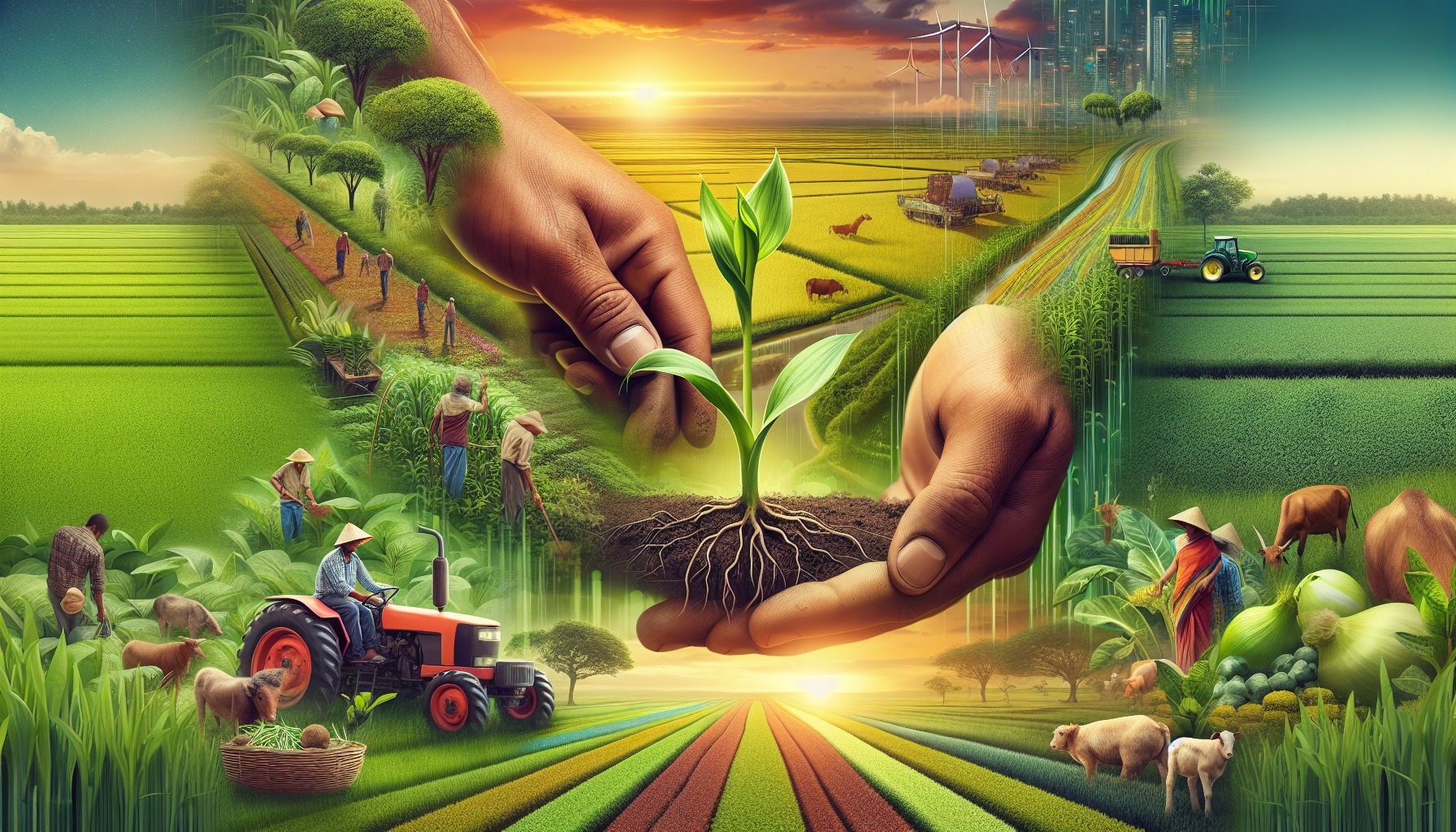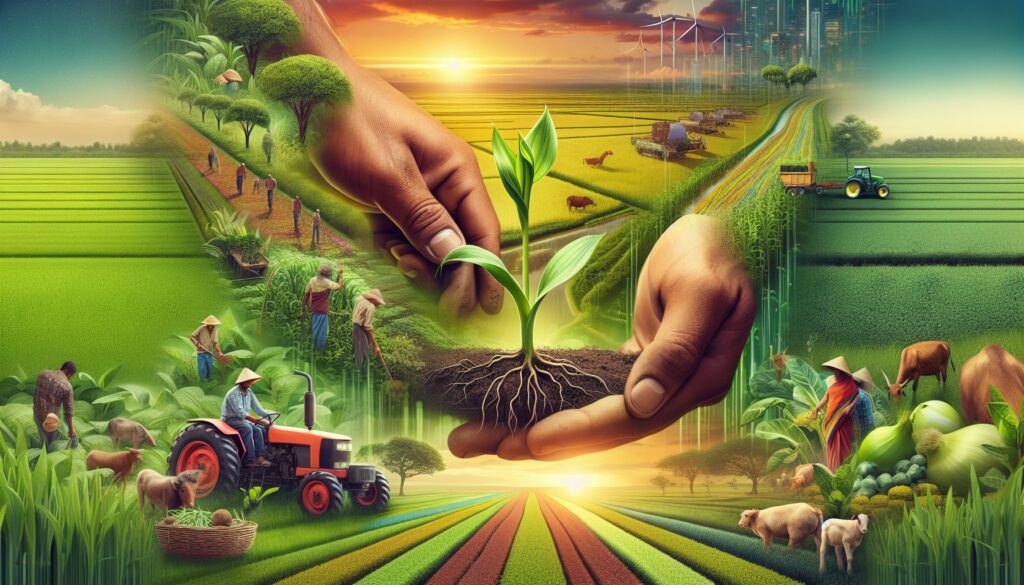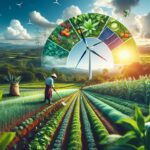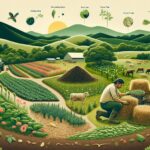The Essence of Agriculture: Sustaining Life and Nurturing Growth
Agriculture, often referred to as the backbone of civilization, plays a fundamental role in sustaining human life and fostering the growth of societies. It is more than just the cultivation of crops and raising of livestock; it is a deeply rooted tradition that intertwines with nature, culture, and the economy. In its calm and steady rhythm, agriculture continues to nourish the world, generation after generation.

A Connection with Nature
At its heart, agriculture is about the connection between humans and the earth. Farmers, the stewards of the land, work in harmony with the seasons, the soil, and the weather. The changing landscape throughout the year serves as a reminder of nature’s cycles—spring planting, summer growth, autumn harvest, and winter rest. It is a rhythm that fosters patience and respect for the natural world.
In this delicate balance, sustainable practices are becoming increasingly important. Many modern farmers embrace eco-friendly techniques such as crop rotation, organic farming, and minimal pesticide use. These methods not only preserve the health of the soil but also protect the ecosystems that agriculture depends on, ensuring that the land remains productive for future generations.
Feeding the World
Agriculture is responsible for providing the food that sustains nearly 8 billion people globally. From staple crops like rice, wheat, and corn to fresh fruits and vegetables, the bounty of the earth nourishes bodies and fuels economies. While technological advances have made farming more efficient, increasing yields and reducing labor, the core purpose of agriculture remains the same: feeding people.
In many parts of the world, small family farms are still the foundation of agriculture. These farmers cultivate their land with care, passing down knowledge through the generations. Their work ensures that local communities have access to fresh, nutritious food, while also preserving the heritage and culture tied to farming practices.
The Future of Agriculture
As the global population grows and climate change alters weather patterns, the future of agriculture faces new challenges. Innovative solutions are emerging, from vertical farming in urban areas to precision agriculture that uses data to optimize crop yields. These advancements offer hope for maintaining food security and protecting the environment, even in the face of adversity.
Agriculture, at its essence, will always be about growth—nurturing the land, the crops, and the people. It is an enduring testament to humanity’s connection with the earth, a calm and steady force that sustains life.
Conclusion
Agriculture is more than a profession; it is a way of life. It embodies patience, respect for nature, and a commitment to nurturing growth. As we move forward, balancing innovation with tradition, agriculture will continue to play a vital role in shaping the future of our world. The steady hands that till the soil today are laying the foundation for a sustainable tomorrow.



